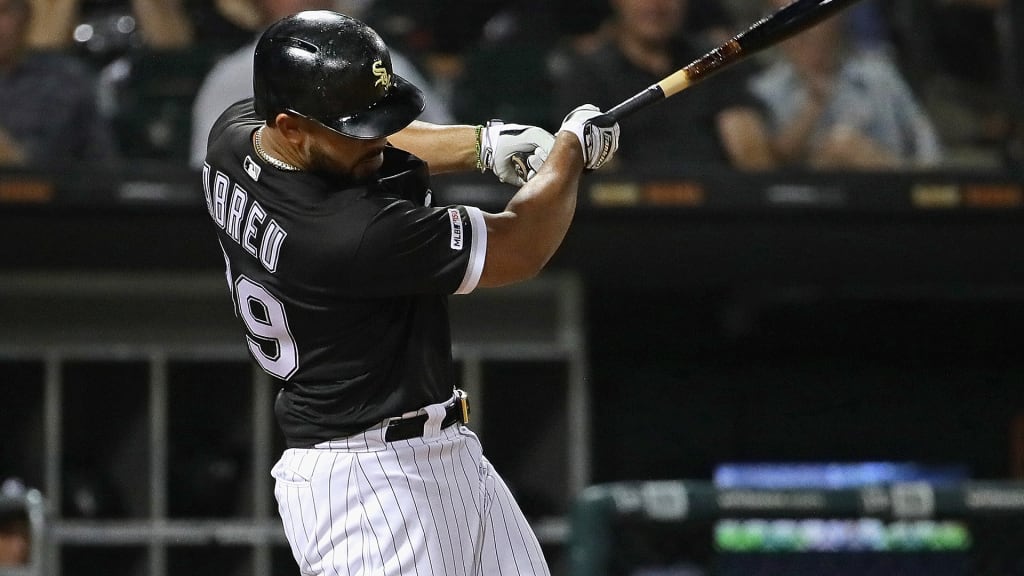
CHICAGO -- José Abreu was one of 10 eligible free agents to be extended qualifying offers by their respective teams for 2020 as announced on Monday. That qualifying offer is a one-year deal worth $17.8 million, with Abreu having earned $16 million in his sixth season with the White Sox in ’19.
Josh Donaldson, Gerrit Cole, Marcell Ozuna, Jake Odorizzi, Zack Wheeler, Madison Bumgarner, Will Smith, Anthony Rendon and Stephen Strasburg also had qualifying offers extended.
So, what does this move mean for Abreu and the White Sox? Here’s a look at some possibilities.
Should Abreu take the qualifying offer?
Some would argue the decision is a slam dunk.
Abreu has 10 days to decide whether to accept, and if he does, he would be signed with the White Sox for ’20 at the qualifying offer value. If he declines, Abreu becomes a free agent and if a new team signs Abreu, the White Sox would receive Draft pick compensation in the Competitive Balance Round B as a team not receiving revenue sharing and as a team that did not exceed the luxury-tax salary threshold the previous season.
In the event Abreu declines, the White Sox still could work out a multi-year deal with the free agent first baseman. It’s a situation both sides might be considering at this time.
Is there a benefit to Abreu at one year?
There seemed to be little doubt Abreu was coming back to the White Sox. He spoke on a number of occasions about being a part of this talented rebuilding core as it moves into a competitive stage, and the White Sox hold Abreu in equally high value. His importance goes well beyond his statistics, which featured a slash line of .284/.330/.503 with 33 home runs and a career-high and American League-leading 123 RBIs.
Abreu influenced burgeoning standouts such as Yoán Moncada, Eloy Jiménez, Tim Anderson and even Luis Robert, who spent a highly productive 2019 season in the Minors. But even with his big value to the White Sox, Abreu turns 33 on January 29, and he hit .257 with a .772 OPS against right-handed pitching in ’19.
Andrew Vaughn, the organization's No. 3 prospect and No. 21 prospect overall per MLB Pipeline, could be ready to take over at first base by the start of the 2021 season. The White Sox could make the transition from Abreu to Vaughn after this season, and re-visit Abreu as primarily a designated hitter after ’20.
Is it likely Abreu accepts?
Since the system was implemented in 2012, only six of the 80 players to receive a qualifying offer have accepted it. The Dodgers’ Hyun-Jin Ryu was the only one of seven to accept last year.
What is Abreu’s market?
Teams looking at Abreu most likely would want him as a DH, despite Abreu’s desire to play first base and his daily work to improve defensively at the position. The qualifying offer knocks that interest down another level. As general manager Rick Hahn has pointed out, Abreu’s value to the White Sox is understandably greater than it would be to other teams. Ultimately, a two-year deal with possibly a team option makes sense for both sides.
Will Abreu’s return prevent the White Sox from adding at DH?
Absolutely not. The White Sox ranked last in the AL in DH OPS and second to last in home runs, while ranking last in baseball in right-field OPS by a large margin. There’s plenty of work to be done for a team with an eye toward contending and 2020 payroll commitments below $15 million before arbitration.
Was there any other big news relating to the White Sox on Monday?
Many offseason White Sox plans were torn up when designated hitter J.D. Martinez decided to stay with the Red Sox for 2020. Fans and media alike saw Martinez as a good fit with the White Sox if he opted out.
